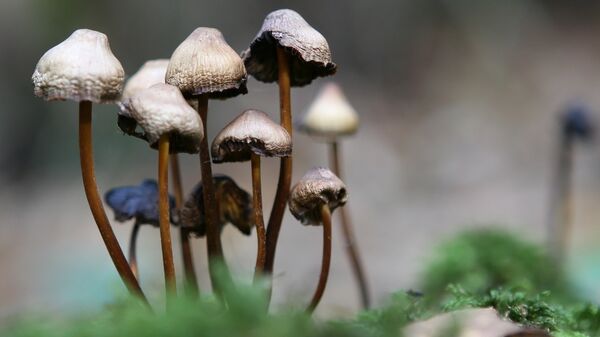The Global Drug Survey assessed reports from 120,000 individuals in 50 countries. The study is the world's most extensive drug survey, with questions covering the types of substances users take, patterns of use and whether any negative effects were experienced.
In all, 28,000 respondents said they had taken magic mushrooms at some point in their lives, with 81.7 percent seeking a "moderate psychedelic experience" and the "enhancement of environment and social interactions."
Commenting, Dr. Adam Winstock, Consultant Addiction Psychiatrist and founder of the Global Drug Survey, said magic mushrooms are one of the safest drugs in the world — the biggest risk is people picking and eating the wrong mushrooms. Death from toxicity is almost unheard of. Nonetheless, the psychedelic substance isn't completely harmless.
"Combined use with alcohol and use within risky or unfamiliar settings increase the risks of harm most commonly accidental injury, panic and short lived confusion, disorientation and fears of losing one's mind. Plan your trip carefully with trusted company in a safe place and always know what mushrooms you are using," Dr. Winstock said.
With 1 in 5 #GHB #GBL users reporting passing out this new video from @GlobalDrugSurvy has important safety info https://t.co/3IfSzNpHVj
— London Friend (@lgbtfriend) May 24, 2017
Still, research carried out at Johns Hopkins Medicine concluded even bad trips can have positive outcomes. The 2016 paper surveyed 2,000 individuals about their single most psychologically difficult or challenging experience with magic mushrooms — while almost three percent received medical help and eight percent sought treatment for enduring psychological symptoms, 84 percent of respondents said they benefited from the experience.
"In a way, it's not really so surprising. When we look back on challenging life events we wouldn't choose, like a bout with a major disease, a harrowing experience while rock-climbing, or a painful divorce, sometimes we feel later that the difficult experience made us notably stronger or wiser. We might even come to value what happened," the authors said in a Q&A.
Other psychedelic drugs also suggested a low incidence of dosage-related casualties. Of the 10,000 LSD consumers who took part in the survey, under one percent of them — 95 people — reported seeking emergency medical treatment after using the substance, five times more than those who took magic mushrooms. The survey attributes this to LSD's potency — it's so difficult to dose accurately when tabs vary so widely in strength, meaning it's easy to take too much and have an overly intense experience.
Moreover, the study noted LSD manufacturers have begun incorporating new super-potent elements, such as NBOMe, into tabs, only adding to the risk of LSD.
One of the riskiest drugs, according to the survey, was synthetic cannabis — one in 30 users sought emergency medical treatment, the highest of any drug studied except crystal methamphetamine. The figure rose to one in 10 among people who used the drug at least 50 times annually.
Synthetic cannabis — often sold as "spice" and "black mamba" — is an umbrella term for hundreds of chemical compounds that emulate the effects of THC, the active ingredient of cannabis, in the brain. Such synthetic forms are often extremely potent, cheap and odourless, and they have flooded the market in Europe and North America. They have proven particularly popular in UK prisons, where they have been linked to deaths, serious illness and self-harm among inmates.
#fakenews #drugs #CommonSense #honestconversation pic.twitter.com/H4sLGKRuOx
— Global Drug Survey (@GlobalDrugSurvy) May 25, 2017
Dr. Winstock believes the findings indicate a need for drug policy reform, with a focus on shifting psychedelics off the UK's schedule one list of the most dangerous controlled substances:
"Drug laws need to balance the positives and problems they can create in society and well crafted laws should nudge people to find the right balance for themselves. People don't tend to abuse psychedelics, they don't get dependent, they don't rot every organ from head to toe, and many would cite their impact upon their life as profound and positive. But you need to know how to use them."
However, Brad Burge from the Multidisciplinary Association for Psychedelic Studies urged caution on relying on people's self reports for data as people often take multiple drugs at the same time — it can be difficult to tell which one is causing the problem.
Furthermore, he highlighted that seeking emergency medical treatment means different things for different drugs. With heroin, for instance, a trip to the emergency room is typically a life-or-death situation requiring resuscitation and medication. With LSD or mushrooms, there is no toxicity and no lethal dose, and the effects wear after a few hours.



